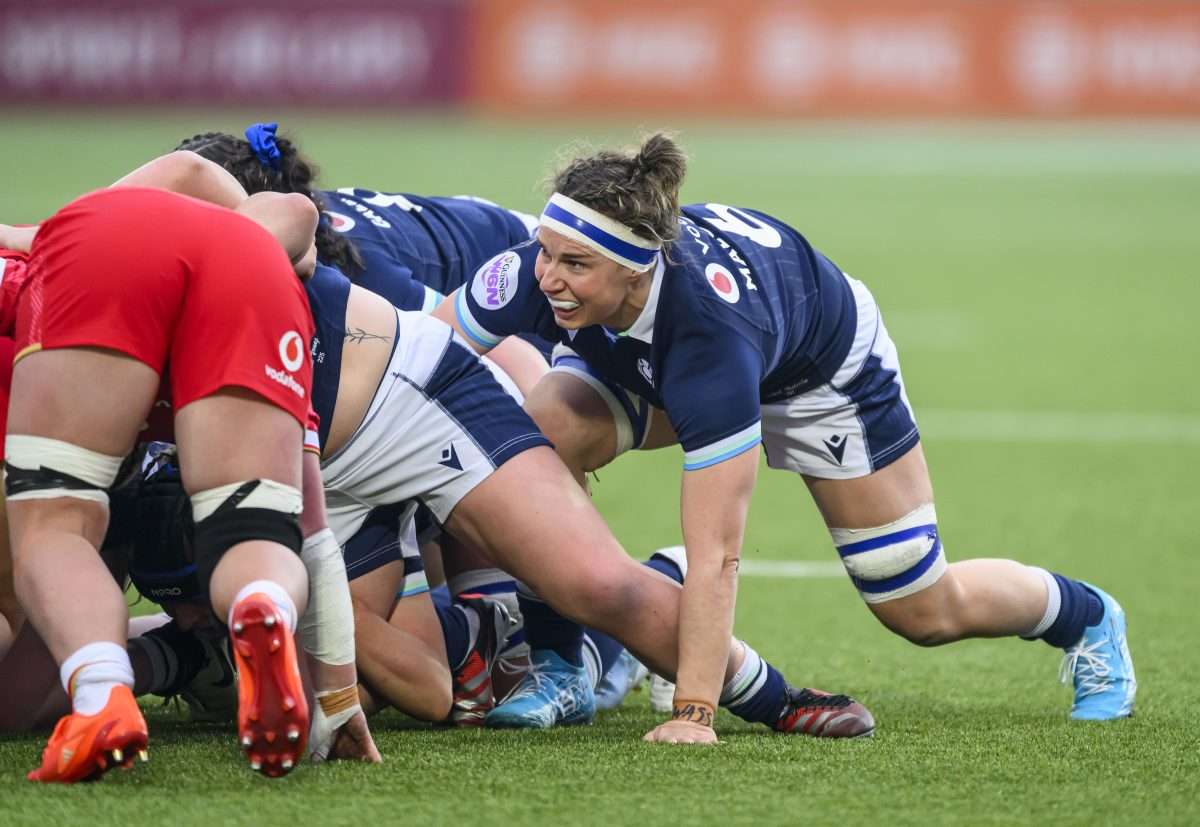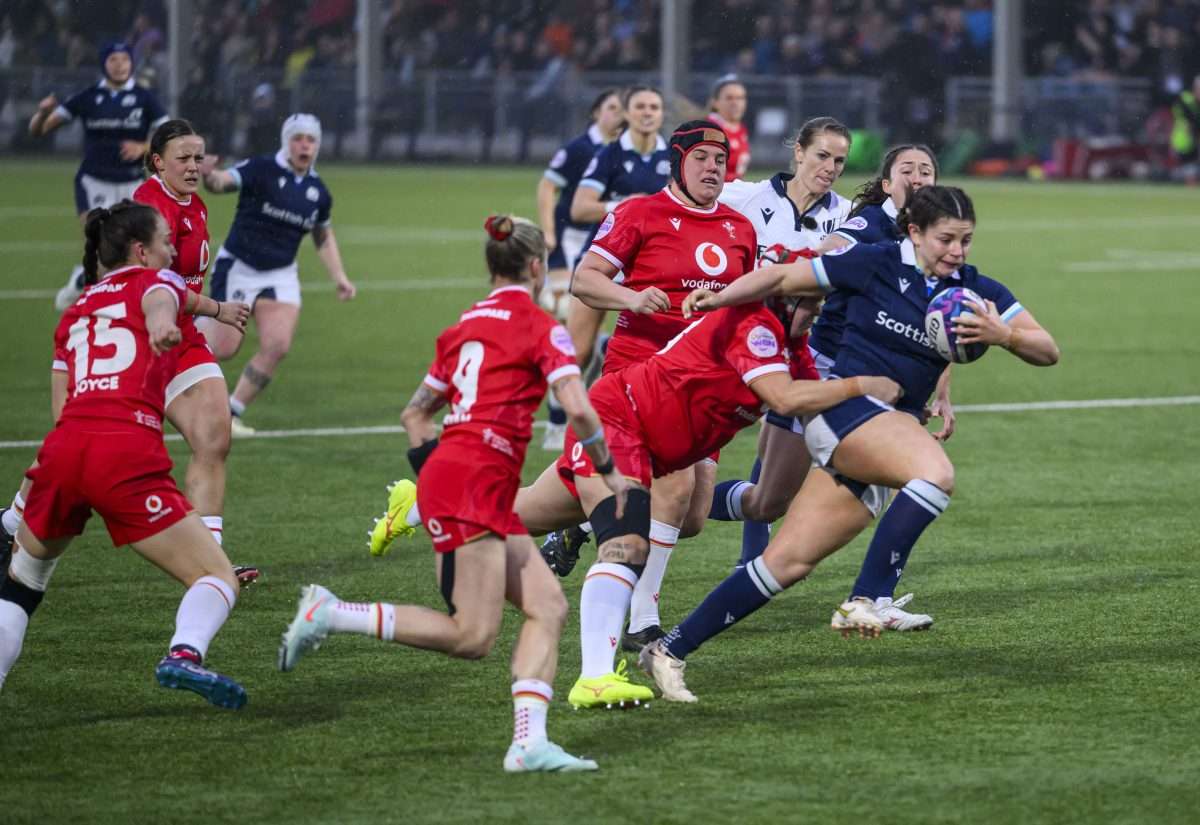POOL B of Women’s Rugby World Cup 2025 kicks off with a clash that feels as though it has been simmering for years. Scotland and Wales, two sides bound by history, geography, and an endless Six Nations rivalry, meet in Manchester on Saturday afternoon in a fixture that may very well shape the destiny of Pool B. Both arrive with ambition, both carry baggage, and both know that defeat in their opener could leave them with a mountain to climb in a group that also contains Canada and Fiji.
For Scotland, this World Cup represents more than just another tournament cycle. It is the culmination of a steady journey from the amateur fringes to a professional environment in which players can finally devote themselves fully to the game. Head coach Bryan Easson, who will depart after the competition, has built a team that now marries resilience with creativity. The Scots have often been competitive without being clinical, but the sense within camp is that they are ready to take that next step. Their campaign begins here, against a familiar foe.
Wales, too, arrive with a point to prove. A side that has endured its share of turbulence over the past two years, they now look to have settled. Contract disputes and questions into depth appear (sound familiar?) to have been parked, with Sean Lynn’s squad buying into a renewed sense of direction. Wales’ proud history in the women’s game includes a World Cup semi-final appearance in 1994 and more recently a quarter-final finish in New Zealand in 2022. But they want more. With a crop of players capable of blending raw physicality with flair, they see 2025 as their chance to reassert themselves on the world stage.
These teams are not strangers. Their Six Nations encounters are often decided by fine margins, momentum swinging on one missed tackle, one wayward kick, one burst of individual brilliance. The last time they met at a World Cup – in Whangãrei in 2022 – Wales edged Scotland 18-15 thanks to a late penalty, a defeat that left the Scots devastated and highlighted their struggles to close out tight games. Revenge may not be the official watchword from the Scottish camp, but it hangs in the air all the same.
Saturday’s contest has all the makings of another bruising arm-wrestle. Scotland will look to their experienced forwards to lay the platform with captain Rachel Malcolm, Lana Skeldon and Emma Wassell central to their ambitions. Their backline, guided by Helen Nelson and energised by Lisa Thomson and Emma Orr, has a skillset to stretch opponents once quick ball is secured.
For Wales, the battle will hinge on intensity at the breakdown. Their back-row unit has shown an appetite for disruption, and if they can slow or steal possession, the tempo of the game will tilt in their favour. Add in the power of their front -ow, spearheaded by Gwenllian Pyrs, and they have every reason to believe they can dictate the collisions.
Off the pitch, too, there is a sense of occasion. The Salford Community Stadium, with a capacity of over 11,000, offers a tight, intimate setting perfect for fostering intensity. The crowd, likely split between travelling Scottish fans and a strong Welsh contingent, will bring colour and noise befitting of a World Cup curtain-raiser for these nations. For players who have toiled through semi-professional structures and battled for recognition, walking out to such an atmosphere is both reward and responsibility.
Above all, this is a meeting of equals, Scotland and Wales are not chasing headlines in the way England, France or New Zealand might, but they represent the heartbeat of northern hemisphere rugby – resilient, proud, and desperate to prove that they belong among the game’s elite. The outcome may not define their entire World Cup, but it will set the tone.
Win, and the quarter-finals look like a realistic ambition. Lose, and the pressure against Canada later in the pool could be suffocating.
There will be stories within stories: veteran leaders carrying their sides through another campaign, young stars looking to announce themselves on the biggest stage, and coaches aiming to cement legacies.
But strip it all back and Saturday comes down to a simple truth: two Celtic rivals, 80 minutes (or more as this fixture usually goes) and everything to play for.

Rachel Malcolm will lead from the front as Scotland hunt a winning start to their World Cup campaign. Image: © Craig Watson – www.craigwatson.co.uk
Scotland
- Pack Power: Under captain Malcolm, the Scottish forwards, spearheaded by Wassell, bring experience and grit. Expect a physical battle up front.
- Creative Axis: Midfield trio of Nelson, Thomson and Orr will be pivotal in linking forward momentum with backline flair.
- Finishers: Francesca McGhie’s pace out wide gives Scotland a cutting edge, especially when worn-down sides offer overlap opportunities.
Wales
- Set-piece Structure: Wales must neutralise Scotland’s forward platforms – scrums and line-outs will be crucial.
- Breakdown Intensity: Expect Wales to attack the contact area ferociously, with back-row operators hunting turnovers and disrupting Scotland’s ruck speed.
- Improved Cohesion: With contract issues behind them and a settled coaching staff, Wales enter the tournament more locked in and hungrier than ever.
- Evie Gallagher (Scotland): The tireless backrower was a standout in the Six Nations. Her tackling rate and ability to carry over the gain-line will be critical if Scotland are to impose themselves physically.
- Helen Nelson (Scotland): A calming influence at fly-half or inside centre, Nelson’s boot can dictate territory and apply scoreboard pressure in a tight contest
- Gwenllian Pyrs (Wales): The loosehead prop’s scrummaging power and work-rate in the loose could set the tone for Wales in forward exchanges
- Sisilia Tuipulotu (Wales): Primed to make an impact on the bench, a destructive ball-carrier, capable of breaking tackles and generating front-foot momentum, she is a potential game-changer if given space.
- 2022 Six Nations: Wales 24 Scotland 19
- 2022 Rugby World Cup: Wales 18 Scotland 15
- 2023 Six Nations: Scotland 22 Wales 34
- 2024 Six Nations: Wales 18 Scotland 20
- 2024 WXV warm-up: Scotland 40 Wales 14
- 2025 Six Nations: Scotland 24 Wales 21
Scotland Head Coach Bryan Easson:
“We believe we’ve got a team that can cope with [tight games]. We also believe we’ve got a bench that can come on and help that as well. It is a 23-player game. The 23 players have been exceptional this week but so have the other nine.
“It’s the 32. The players who have not been involved this week have had the red bib on. They’ve been training as Wales. They’ve been preparing as Wales. We know what’s to come. We’ve prepared accordingly. But it’s for the last World Cup, 81-82 minutes. It’s not just 80. There could be overtime. There could be anything. So, we’ve prepared and we’re ready to go.”
Scotland Captain Rachel Malcolm:
“I think something that we take as a big responsibility on our shoulders is that we represent Scotland women of past, of present, and of future, and what we do on the pitch and what we do off the pitch, particularly on a world stage … we know the responsibility that we hold and how big an impact that can have on those women of the future, those women that are going to have the opportunity to follow in our footsteps to be custodians of these incredible jerseys. We hold that very high in what motivates us to go to those dark places, to work as hard as we can and stay as professional as we can in these environments.”
Wales’ Lisa Neumann:
“I had my first cap against Scotland in 2018. I think playing Scotland is always a massive challenge. We’re quite similar in terms of ability, I would say. You don’t really know which team is going to come out on top.
“You’ve got exciting players in the Scotland team who come out with flair, we’ve got the same. It’s a massive battle. Even if you’re 10 points ahead, you can’t take your foot off the gas. It’s an absolute battle right to the 80th minute.”
Wales’ Captain Kate Williams:
“I know the recent results have proven that Scotland have had the upper hand over us, but if we take context into any part of the conversation, we only had two days with Lynnie [head coach Sean Lynn] before we were playing that game for Scotland. We’re a different team from when we played Scotland in the Six Nations. I’m really excited to see how we go.
“I think it’s exciting that we hit the ground running straight away in a World Cup, and I think it’s really important to build momentum from the first game. I’m really excited to see what we can do against Scotland, and then bring it in for the other two pool games.”
Scotland: C Rollie; R Lloyd, E Orr, L Thomson, F McGhie; H Nelson, L Brebner-Holden; L Bartlett, L Skeldon, E Clarke, E Wassell, S Bonar, R Malcolm ©, R McLachlan, E Gallagher. Subs: E Martin, M Wright, L Cockburn, J Konkel, E Donaldson, A Stewart, C Mattinson, B Blacklock.
Wales: N Metcalf; L Neumann, H Dallavalle, C Keight, J Joyce-Butchers; L George, K Bevan; G Pyrs, K Jones, D Rose, A Pyrs, G Crabb, K Williams, B Lewis (co-©), A Callender (co-©). Subs: C Phillips, M Davies, S Tuipulotu, A Fleming, G Evans, S Lockwood, K Powell, C Cox.
This first Pool B clash promises to be tight, physical, and emotionally charged. Scotland’s structured play and localised professionalism give them a subtle edge, but Wales’ breakdown pressure could be a decisive leveller.
A gritty, narrow win to Scotland – but only if they manage to protect their ball at the ruck and deny Wales the chance to disrupt the momentum.
Eve McTiernan says: “SCOTLAND BY THREE”
